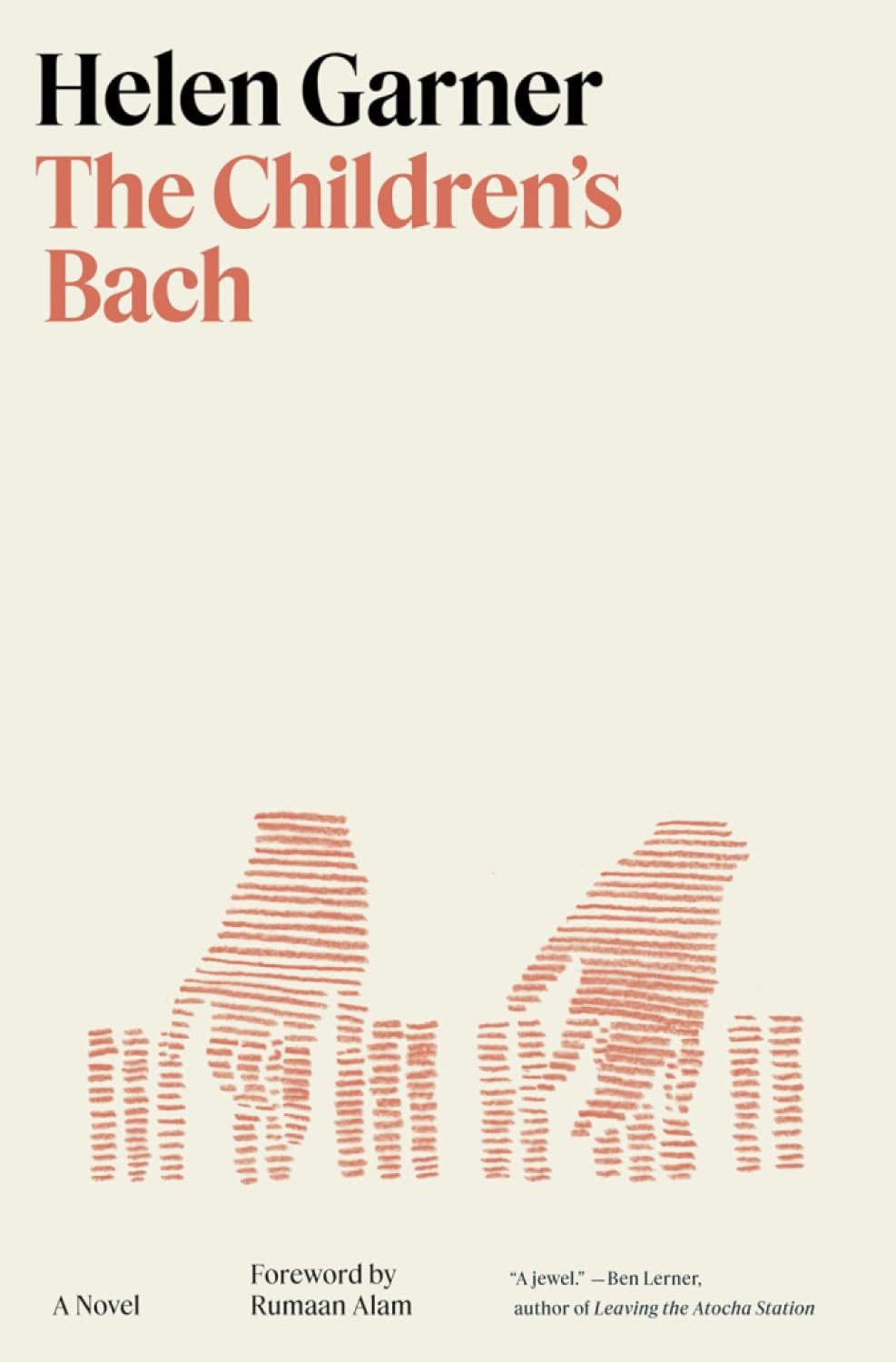Book Review | ‘The Children’s Bach’ by Helen Garner
Australian Author Gets a Well-Deserved New Audience with Re-Release of Vintage Novel

Helen Garner is having a well-deserved moment. The 81-year-old author, renowned in her native Australia but until recently barely known in the U.S., has benefited from the re-publication of her 1984 novel The Children’s Bach and her 2014 true crime nonfiction book This House of Grief this past October and her daring first novel, Monkey Grip, in February. For my money, The Spare Room, her autofiction about a supremely annoying friend dying from cancer, is the most jolting of her books, but The Children’s Bach certainly surprises and satisfies from the first page to the last.
In her introduction to this edition, Rumaan Alam concisely summarizes the novel’s characters and their relationships: “There’s Athena and Dexter, a suburban couple with two sons, Arthur and Billy, who was born with some never quite explored developmental disability. A chance encounter reunites Dexter with Elizabeth, a college chum, and her younger sister, Vicki, come to stay because their mother has died. The group is tethered as well to Philip, Elizabeth’s sort-of boyfriend, and his daughter, Poppy.” However, as Alam acknowledges, “It’s a loose alliance, an at times confusing roster of names, especially as Helen Garner doesn’t overexplain.”
“Helen Garner doesn’t overexplain” is an understatement. Things happen, as in a Richard Scarry book, with great rapidity and often without apparent cause-and-effect. In the hands of a lesser writer, this would probably result in a bewildering mess, but Garner always has her finger on the pulse of the narrative, knowing just when to slow down enough for us to get our bearings. There’s a lovely scene, for instance, when Elizabeth and Poppy go to a music store so that Poppy can play the pianos, and Poppy has an impromptu duet with a young salesman: “Their game was clever: the man teased, the girl echoed him, they were flirting with each other, laughing; they played three chords in slow unison. People stopped and listened, pretending not to, because it was so intimate.”
Athena and Dexter’s bright and knowledge-loving son Arthur is appealing, while poor Billy is pitiable in a way that would probably be impossible to depict in a book first published in 2023. Teenaged Vicki, on the cusp of adulthood, seems to be absorbing the least appealing characteristics of the “grown-ups” around her, though she has verve galore.
None of the adult characters are especially likable. Philip is an egotistical jerk, as is Elizabeth. Starchy, judgmental Dexter apparently stands as the moral center of the book. Philip says, “‘He’s like a character out of a Russian novel, or a Wagner opera. A noble soul.’” However, Dexter is something of a straw man, and when “modern life” snags him in its “moral universe” (“He did not like it. He hated it”), his awakening to reality is hardly earth shattering.
Ultimately, for good or ill, Athena is our heroine. She’s initially sympathetic as the mother of a household in which the other three occupants, all male, are draining the life out of her: “Athena stops eating, though she still buys food and prepares it. Her clothes hang off her, but her husband’s and her children’s are still clean and ready. She starts to walk by herself at night, she can hardly wait to be out of the house, they cannot seize her attention once he sun has set.” Her decision to have an affair seems somewhat justified, but her choice of a lover is inapt, and by the end of their affair, the couple are like “two ghosts … two empty sets of garments hung opposite each other in a cupboard.”
As the book’s title suggests, music may be the key to deciding who is fit, or unfit, to navigate the modern world. Dexter is clueless; Poppy plays with ease and grace; Philip is a professional guitarist, with ardent fans. But poor Athena is barely making her way through the basics: “There were days when her approach to the music … was so unrhythmic and lacking in melody that she was ashamed, as if she had defaced an altar, and she closed the piano and went out into the backyard with a broom.” These little moments of genuine sadness, scattered throughout the novel like pebbles on an otherwise sandy beach, offset its sometimes-zany plot and ensure that The Children’s Bach is, indeed, one of those books that Garner, in her diaries, aspired to write: “small but oblique enough to stick in people’s gullets so that they remember them.”
This review originally appeared in the California Review of Books.











You must be logged in to post a comment.